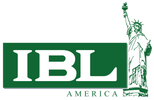Reasons to Analyze Complement
Posted by Brandon Savela on Feb 2nd 2017
Complement is an essential part of the innate immunity and therefore disturbances of the complement system leads to infections, amplify diseases etc. The complement function testing also verifies the effect of certain treatments. Therefore it is important to analyze the functional activity of the system.
Three major reasons to study complement function:
1. Complement deficiencies are associated with infections and autoimmune diseases. Deficiencies of the classical pathway are often associated with SLE, glomerulonephritis and susceptibility to infections. Deficiencies of the alternative pathway often leads to Neisserial infections etc. An excellent way to screen for deficiencies is to study the function of the three pathways of the system. (Ref 1, 2, 3)
2. Activation of the complement system is part of active autoimmune diseases and therefore reflects ongoing disease processes. For example in SLE it is important to follow activity of disease since complement activation follows disease activity and can detect flares. (Ref 4, 5)
3. New therapies are aiming at stopping or increasing complement activity and therefore complement function is important to assess. An example is the anti-C5 monoclonal antibody therapy, where complement function testing verifies effect of the treatment. (Ref 6)
Complement System Alternative Pathway, Complement System MBL Pathway, Complement System Classical Pathway, Complement System Screen
____________________________________
Page References
2. Tudoran R & Kirschfink M. Modern complement analysis: indications, methods and outlook. J Lab Med 2012;36.
3. Mollnes TE et al. Complement analysis in the 21st century. Mol Immunol 2007;44: 3838-3849. Open source.
4. Harboe M et al. Advances in assay of complement function and activation. Adv Drug Deliv Rev 2011.
5. Ceribelli A et al. Complement Cascade in Systemic Lupus Erythematosus Analyses of the Three Activation Pathways. Ann. N.Y. Acad. Sci. 2009; 1173: 427–434.
6. Testa S. et al; Interval extension of maintenance Eculizumab treatment in patients with atypical haemolytical uremic syndrome. Poster B5, 4TH International conference HUS-MPGNTTP
and related disorders, 2013.
